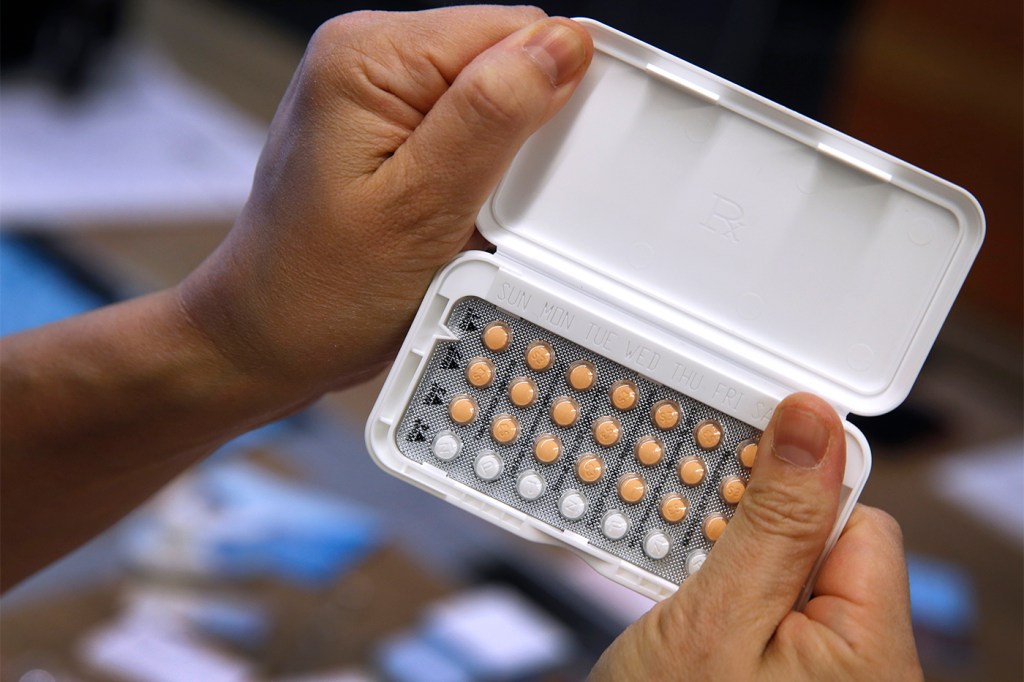Will the courts take away the FDA-approved over-the-counter birth control pill?

The Food and Drug Administration’s approval of the first over-the-counter birth control pill in the United States will increase access to contraception and give people more control over their reproductive future, Northeastern University experts say.
“It’s a big deal,” says Kathy Simmonds, a clinical professor in the School of Nursing and expert on reproductive justice. “It’s really a bright spot in a dark time, because in terms of reproductive justice, much of what we want to see happening is increasing access to services and supplies that allow people to control their own reproductive destinies. Given what’s been happening nationally, that’s not the trend.”
That trend, however, makes the approval also a bit uncertain—particularly given the Supreme Court’s Dobbs decision, which outlawed the constitutional right to an abortion.
“The edge between the FDA and the state has, I think, been a little uncertain, and now is becoming more contested post-Dobbs,” Wendy Parmet, Matthews Distinguished University Professor of Law and co-director of Northeastern’s Center for Health Policy and Law. “Everything is so uncertain right now.”
On Thursday, the Food and Drug Administration approved the first over-the-counter birth control pill in the United States.
The medication is called Opill and is expected to become available from stores and online retailers in the United States in early 2024. Opill was approved for prescription use 50 years ago, and the non-prescription pill will be identical to the prescription version, which is 93% effective at preventing pregnancy with typical use.
“Today’s approval marks the first time a nonprescription daily oral contraceptive will be an available option for millions of people in the United States,” Dr. Patrizia Cavazzoni, director of the FDA’s Center for Drug Evaluation and Research, said in a statement. “When used as directed, daily oral contraception is safe and is expected to be more effective than currently available nonprescription contraceptive methods in preventing unintended pregnancy.”
It’s really a bright spot in a dark time, because in terms of reproductive justice, much of what we want to see happening is increasing access to services and supplies that allow people to control their own reproductive destinies.
Kathy Simmonds, a clinical professor in the School of Nursing
The approval is a “long-time coming,” Simmonds says, noting that over 100 countries have birth control pills available over the counter and that leading professional organizations have endorsed the approval.
“The science has been there for a while,” Simmonds continues. “I’m not surprised. But I’m pleased, because it’s going against the current of the way we have been going in terms of sexual and reproductive health in this country.”
Simmonds says that having an over-the-counter birth control pill will increase reproductive justice by removing barriers to birth control use.
“By removing the need for a prescription for birth control pills, you eliminate one of the gatekeepers and one of the large obstacles for people, which is that they have to access a health-care provider or health-care clinic to get a prescription,” Simmonds says.
She sees it as particularly beneficial to young people, rural residents, and residents of states where there are many barriers to accessing sexual and reproductive health services.
But with the current political climate—Parmet emphasizes “the question of whether this is going to become legally complicated is first and foremost a political question”—that the approval is beneficial to young people might become a problem.
“I expect there will be people who are opposed to this precisely because it enables minors to obtain it without a prescription or without parents’ knowledge,” Parmet says. “I could certainly imagine that in certain states—in the name of parents rights, being anti-woke—trying to say that the state is going to prohibit the sale of the drug to minors.”
“I don’t know,” Parmet continues. “I don’t see any state saying nobody can use condoms, no women can use the pill, but this one I don’t know.”
She noted that the courts seem to have no problem overturning precedent—and that case law that established a right to contraception is built “on the edifice of Roe v. Wade.”
“What’s precedent worth these days?” Parmet asks.
She asked several other questions which may determine whether a lawsuit is filed. For instance, whether social conservatives and their favored media pick up the issue; whether a conservative state attorney general and/or interest group would find it worthwhile to file a challenge; and whether a state legislature would try to ban the approval.
“I don’t think it would win in the courts, but we’ve seen what happens—never say never,” Parmet says. “One of the things that happened in the post-Dobbs era—in the last few years—is things we thought we knew, we no longer know. There is a lot of uncertainty in the law right now. The Supreme Court has upended doctrines, overturned precedents in so many ways.”
Simmonds, for her part, says she is choosing to be optimistic.
“One hundred other countries have already made it available to their populations, so we’re behind the times,” Simmonds says. “So I’m not nervous.”
Cyrus Moulton is a Northeastern Global News reporter. Email him at c.moulton@northeastern.edu. Follow him on Twitter @MoultonCyrus.






